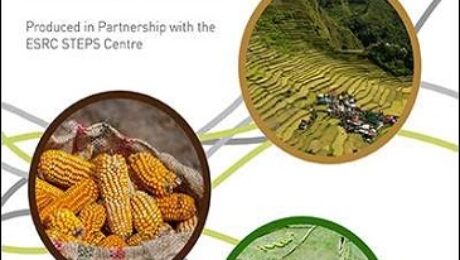Pathways to Sustainable Agriculture
Tuesday, 29 July 2025
It draws on four books which address three themes central to understanding how pathways emerge in agriculture, and how sustainability, is or indeed is not, generated. The three themes are: framing (how we understand agriculture and its roles in development), practice (how agriculture and agricultural research is carried out, and by whom) and governance (how agriculture is regulated and controlled).
It includes chapters from 4 books:
Contested Agronomy: Agricultural Research in a Changing World
Regulating Technology: International Harmonization and Local Realities
Governing Agricultural Sustainability: Global Lessons from GM Crops
Adapting to Climate Uncertainty in African Agriculture: Narratives and Knowledge Politics
- Published in AGROECOLOGY, RESOURCES
No Comments

